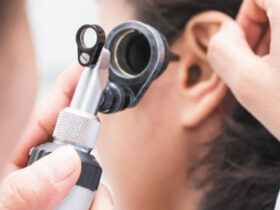By Tom Everts PA-C, IFMCP
 Ok, so maybe it’s not that simple. Cholesterol has had a target on its back since its discovery in arterial plaque over one hundred years ago. Imagine the arteries in your heart getting clogged by thick sticky goo. This is a terrifying notion that has been illustrated repeatedly by pharmaceutical campaigns promoting cholesterol-reducing medications. I don’t want to be misunderstood, as cholesterol certainly has a role to play in the risk of cardiovascular disease. I do, however, want to explore the nuances behind cholesterol as a causative agent.
Ok, so maybe it’s not that simple. Cholesterol has had a target on its back since its discovery in arterial plaque over one hundred years ago. Imagine the arteries in your heart getting clogged by thick sticky goo. This is a terrifying notion that has been illustrated repeatedly by pharmaceutical campaigns promoting cholesterol-reducing medications. I don’t want to be misunderstood, as cholesterol certainly has a role to play in the risk of cardiovascular disease. I do, however, want to explore the nuances behind cholesterol as a causative agent.
When most of us think about cholesterol in regards to diet, images of eggs and bacon or a cheeseburger generally populate in our mind. There is ongoing debate on the dietary intake of cholesterol and its effect on cholesterol production. However, in 2015 restrictions on dietary intake of cholesterol and eggs were dismissed by the majority of health-promoting organizations around the world and in the 2015-2020 Dietary Guidelines for America the limitation of 300mg per day of dietary cholesterol was removed.
Cholesterol is required for life. In fact, there are rare genetic conditions where cholesterol is not synthesized at a high enough rate, and the result is inevitably terminal. Cholesterol is essential in the production of sex hormones, including testosterone and estrogen. Cholesterol is incorporated into the cell membrane of every single cell in your body. This ensures stability and fluidity of the cells. Cholesterol is also required to convert sunlight into vitamin D and create bile acids so we can digest fats.
We can monitor the levels of cholesterol through standard blood work. There are also advanced lipid panels that track the size and number of specific cholesterol particles (not all practitioners will be experienced in interpreting advanced lipid panels, so ask first). These tests are typically done yearly, but more often if there are any concerns. In conventional medicine, when cholesterol is elevated a medication is prescribed to lower it. But what if we asked why cholesterol is elevated in the first place?
There are several well-known causes of elevated cholesterol, including smoking, alcohol, obesity and lack of exercise. However, there are a number of conditions out there that you may not currently associate with an increase in cholesterol:
• Elevated cortisol from chronic stress
• Insufficient sleep
• Acute and chronic infections
• Poor oral hygiene (periodontal disease)
• Certain medications
• High fructose corn syrup
• And more…
In many cases cholesterol is elevated for a reason. It helps to dampen the inflammatory response or provides protection to a degree. Regardless, we end up blaming the fireman for starting the fire: your cholesterol is elevated, here’s your medication.
At this point it goes without saying that a healthy eating strategy and lifestyle is essential to reducing risks associated with elevated cholesterol. This looks different for everyone based on genetics and environment. If you are concerned about elevated cholesterol and prefer a more nuanced approach, reach out to a functional medicine practitioner that can help find the root cause. We are here to help guide you towards optimal health, whatever that means to you. Best of luck!
Linell King MD, renowned internist and author of “Mastering Vitality” received his medical degree from the University Of Wisconsin School Of Medicine, and completed his residency at The Johns Hopkins University Sinai Hospital Program of Internal Medicine. He has been practicing for twenty years; currently at his “Naples Vitality” office in Naples, FL.
Our practice size is limited to ensure the best possible care for our clientele; we qualify and accept patients committed to working collaboratively to create improved health and continued success.
Naples Vitality
239-465-0098
3411 Tamiami Trail N. Suite 200
Naples, FL 34103










